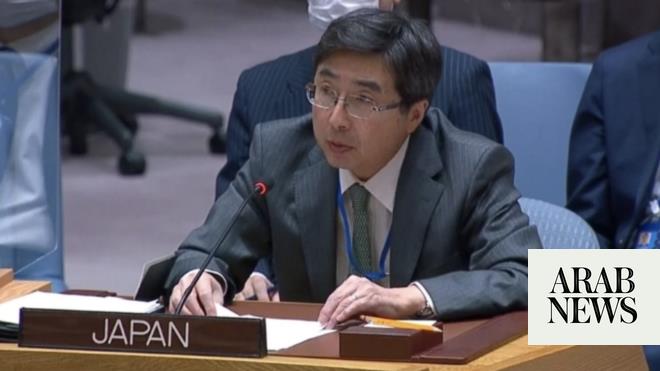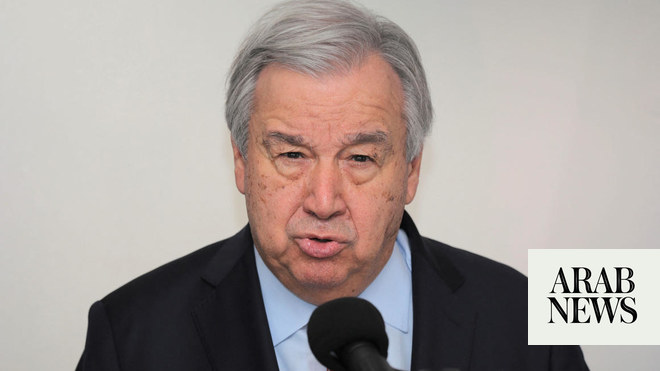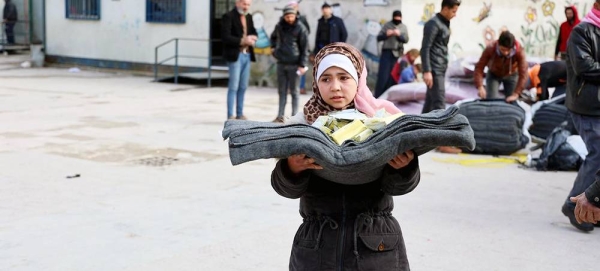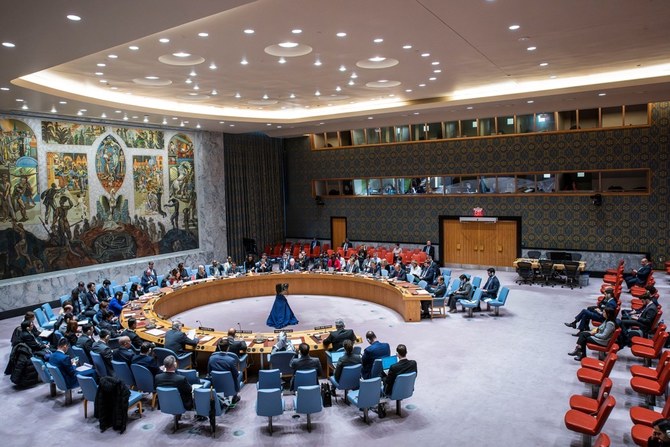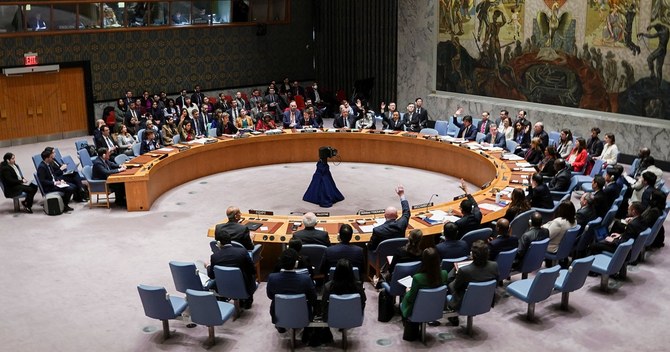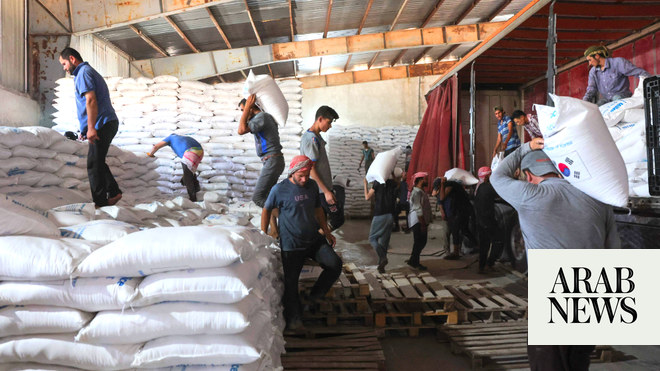
NEW YORK CITY: The Syrian government has given the UN permission to use a crossing on the border with Turkiye for the delivery of humanitarian aid to areas in opposition-held northwestern Syria.
It came after the members of the Security Council failed to agree on an extension to the existing cross-border aid mechanism.
On Tuesday, permanent Security Council member Russia exercised its power of veto to block a draft resolution by Switzerland and Brazil, the council members responsible for the Syrian humanitarian file, that would have allowed aid to continue to cross the border into the country for another nine months.
Moscow submitted a counter proposal calling for the current process of six-monthly renewals to continue but this was also voted down. As a result, UN aid operations at the Bab Al-Hawa border crossing were paused.
The UK, which holds the rotating presidency of the Security Council this month, subsequently received a letter from Bassam Sabbagh, Syria’s ambassador to the UN. The missive, seen by Arab News, stated that all aid deliveries must now be carried out “in full cooperation and coordination with the Syrian Government for a period of six months, starting from July 13, 2023.”
He also urged international donors to “fulfill their commitments” and provide funding for UN aid operations, including projects for “revitalizing the economy, achieving the 2030 (UN) Sustainable Development Goals, and supporting the dignified and voluntary return of the displaced to their homes.”
The UK was swift to rebuke the move by the Syrian government, warning that “without UN monitoring, control of this critical lifeline has been handed to the man responsible for the Syrian people’s suffering.”
Britain’s permanent representative to the UN, Barbara Woodward, who is president of the council this month, added: “The priority needs to be getting aid flowing again, fast, to the people who need it, and then getting certainty over its future. We will not hesitate to bring this back to the Security Council.”
Humanitarian groups have long accused Syrian authorities of manipulating international aid during the 12 years of conflict by withholding it from opposition areas as a tool of war, and using billions of dollars of foreign assistance, intended to alleviate the suffering of the Syrian people, into a lasting “profit center” used to reward regime loyalists and punish the opposition.
The cross-border mechanism was established in 2014 to allow the delivery of UN aid directly to opposition-held areas of Syria. International humanitarian law normally requires that all deliveries go through the host government.
Until December 2019, the members of the Security Council were able to agree to renew the mandate for four crossings — one on the border with Jordan, one on the border with Iraq, and two on the border with Turkiye. In January 2020, however, Russia used its veto to force the closure of all but one of the crossings, Bab Al-Hawa.
Since then, the renewal of the mandate for that last-remaining crossing has become a matter of delicate negotiation, at a time when diplomatic channels between Russia and the US have all but closed, affecting every issue on the Security Council’s agenda.
Moscow argues that the international aid operation violated Syria’s sovereignty and territorial integrity. Because Syria has been “liberated,” it said, all aid destined for opposition-held areas in the north should pass through the capital, Damascus.
The UN has said that although internal shipments of aid from Damascus to opposition-held areas would be a welcome addition to the cross-border lifeline, they are not a suitable substitute. Even if deployed regularly, such convoys would be be unable to replicate the scale and scope of cross-border operations, it warned
Syria remains engulfed in one of the most acute humanitarian crises in the world. The UN’s humanitarian chief, Martin Griffiths, told the Security Council last month that the war has pushed 90 percent of Syrians into poverty. He warned that millions face food cuts because the $5.4-billion target of the UN’s humanitarian appeal for donations to help the country, the largest appeal of its kind, is only 12 percent funded.
Deliveries of aid to the northwest increased significantly in the aftermath of the devastating earthquakes in the area in February that left 4,500 Syrians dead and drove hundreds of thousands from their homes.
At the time Syrian President Bashar Assad authorized the opening of two additional crossings on the border with Turkiye, Bab Al-Salam and Bab Al-Rai, to increase the amount of aid reaching victims of the disaster. In May, he agreed to extended their operations for three months.
UN spokesperson Stephane Dujarric said on Thursday that the UN is in regular contact with Syrian authorities about the future status of the two crossings when the extension ends in mid-August.
“Obviously, those two (crossings) are open but I have nothing to share with you in terms of do we have a green light for further down the line,” he said. “As long as they remain open, we continue to use them.”




